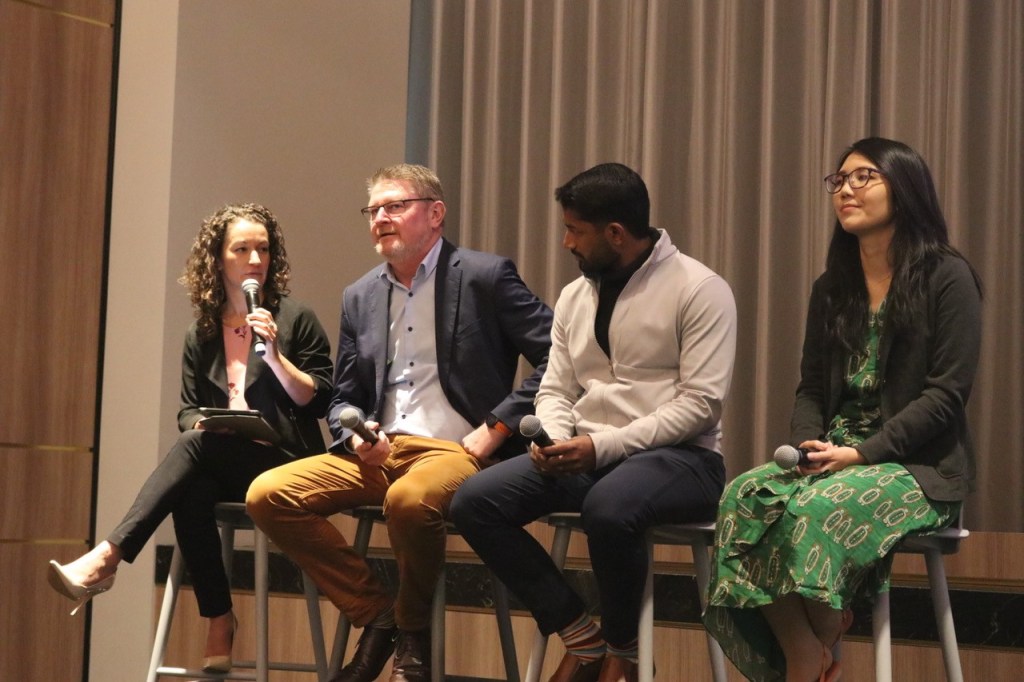Getting cultivated meat to market is no simple task. The fact that only one company in the world has achieved it is testament to this. But many others are vying for the silver medal position, balancing their enthusiasm to launch with the necessary rigour of regulators.
There are more than 90 cultivated meat companies around the world, but only one – San Francisco’s Eat Just – has made the impossible possible, gaining regulatory approval in Singapore in 2020.
Launching into retail (or foodservice) for the first time is one thing, but rolling out into other markets is another. Each country has its own independent regulatory body, responsible for examining the safety of food items before making them available (or not) to the public.
In an increasingly competitive market, and motivated by a rather pressing environmental concern, cultivated meat companies are racing to balance the requirements of food regulators with their desire to spread their products far and wide.
Three industry leaders discussed this balancing act and how it can best be managed during a panel discussion at the recent AltProteins22 conference.
All eyes on Singapore
Not only is Singapore the only country to have approved a cultivated meat product for sale, it’s also regarded as one of the most collaborative regulators in the world, making efforts to simplify the approval process for both local and international companies.
Singapore’s Shiok Meats has showcased pilot scale production of both lobster and crab meat, and its co-founder, Dr Ka Yi Ling, said the Singapore Food Authority (SFA) has been actively trying to organise regulatory forums with other countries.

“Singapore has been trying to get different countries together to form an aligned regulatory framework, which will be really exciting, and some countries have expressed great interest,” she said.
“It makes sense to try and align different countries’ expectations. For example, if we get approved in Singapore and submit a similar dossier to FSANZ (Australia’s regulator) or USDA (US Department of Agriculture), hopefully that will expedite the process if we already have some overall consensus as to what the regulatory process is.”
Vow, Australia’s largest cultivated meat company, will launch a quail product in Singapore this year, and Business Operations Manager, Neel Reddy, is also quick to sing SFA’s praises. Citing a recent market research exercise Vow conducted as an example, Reddy said the world should take note of the SFA’s nimbleness.
“Like most cultured meat companies in the world, Vow is trying to sell into Singapore, but to do that we need to make sure we’re making products that Singaporeans want,” he said. “The only way to do that is to have them taste it and give us feedback – but how can we do that with a product that isn’t even approved for sale?”
“How well do you want to attract versus disincentivise companies to come to your region and sell products?”
Neel Reddy, vow
Reddy said Vow and SFA worked together to create a one-off approval that allowed the company to conduct tastings in Singapore.
“That process took about a month or two, but the awesome thing that the SFA did was after we conducted our [tastings], they basically formalised that process so other companies could use it … I think that’s a really good example of them being collaborative and also being quick – formalising knowledge and spreading it around to everyone.”
Speed vs safety
Glen Neal, General Manager of Risk Management and Intelligence at FSANZ, told Future Alternative the approval process in Australia can be completed in 12 months.
“Once the application is accepted by FSANZ, it will be formally notified, assessed, publicly consulted on, and then considered by the Board and Food Ministers. This is a standard process for assessment of an application to change the Food Standards Code and under a general procedure, typically takes about 12 months from start to finish,” he said.

While this might seem like a pretty streamlined process to some, for energetic start-ups keen to make an impact, it can feel like an eternity.
“It could be the regulatory piece that slows you down,” Neal said. “By the time you’ve got a product you’re excited about, and a product that consumers are going to get excited about, the bit involving regulatory approval might seem a bit painful.”
Neal urged companies working on new products to look into FSANZ’s pre-application assistance program, a free of charge and confidential service that clarifies the application process and allows companies to get feedback before they submit an application.
“It improves the quality of the applications, provides clarity about our expectations and also gives us tremendous insight as to what’s coming,” he said. “It’s really about lowering surprises for everyone.”
Both Ling and Reddy insist that food safety is their most important consideration throughout the regulatory process, but some commercial realities just can’t be ignored.
“Every meat alternative company in the world is making critical decisions around how they allocate their really scarce resources, talents, time and funding,” Reddy said. “We’re trying to make the calculation of where we can go and sell our products the fastest. If there’s a country out there with a really long lead time, from a regulatory perspective, that’s going to make it unattractive for us to dig our roots in there early on, rather than later.
“I think that’s the big issue,” he said. “How well do you want to attract versus disincentivise companies to come to your region and sell products?”
So, what’s the take-home message? In a nutshell, it’s talk to the regulators. Hit them with all your questions, stay in regular contact and constantly update them on your progress. After all, if they’re happy, you’re going to be happy.
“We need to make sure that we’re constantly thinking about safety from the perspective of the regulators,” said Reddy. “We need to talk to people like Glen a lot and make sure we understand what’s most important for them, so we can make their job as easy as possible.”
To stay up-to-date on the latest industry headlines, sign up to Future Alternative’s enewsletter.
Posted on:


